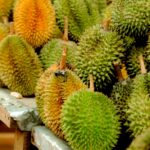Writer Han Jiang won the 2024 Nobel Prize in Literature, setting multiple records: she is not only the first writer in Korean history to receive the Nobel Prize in Literature, but also the first female writer in Asia to receive this honor.
Counting the Nobel Prize in Literature over the past century, the average age of the 121 laureates is 64.91 years old, and its advanced age has earned it the nickname of the “Senior Award” and “Lifetime Achievement Award”. 54 year old Han Jiang has become the first writer born in the 1970s to win an award. Does this mean that the Nobel Prize is paying attention to the new generation of literature? This latest study discussed how Han Jiang won this year’s Nobel Prize in Literature.
Han Jiang’s literary career
On October 10, 2024, the Swedish Academy dialed Han Jiang’s phone number. She had just finished dinner with her son at her home in Seoul, and I was surprised and honored. Afterwards, she will have some tea with her son and silently celebrate. Considering that people die almost every day in the ongoing war between Russia, Ukraine, and Israel, Han Jiang refused to hold a press conference for his award.
After Han Jiang won the award, two voices appeared on the internet. Many readers are celebrating this moment together, but at the same time, there are also doubts about “she is still too young” and “the work lacks literary value”. The harsh treatment of women’s literature may reflect the social reality of why East Asian female writers, represented by Han Jiang, are widely read and discussed.
In 1970, Han Jiang was born in Gwangju, South Korea. His father, Han Shengyuan, was a famous writer, and his brothers were also engaged in literary creation. At the age of 14, Han Jiang determined that he wanted to become a writer. After graduating from the Department of Korean Literature at Yonsei University, she entered the Korean literature world through poetry and novels. In 1999, she won the “Korean Novel Literature Award” with her novella “Baby Buddha”. Over the next thirty years, she created more than twenty literary works and won multiple Korean literature awards, including the “Lee Chong Literature Award”.
In the years following the publication of Fruits of My Woman in 2000, she went through the darkest and most difficult period of her life, “completely in a state of powerlessness and helplessness beyond facing her own pain. In her view, recovering from pain in daily life is not simply about hoping to go back to the past, but rather about comprehensively examining the experience of pain and treating it as a part of life.
In 2014, Han Jiang published another representative work called “Human Acts”. This book leads readers to confront the Gwangju “5.18” political movement in South Korea in the 1980s through the perspectives of six eyewitnesses. In May 1980, South Korean government forces opened fire on pro democracy protesters, resulting in hundreds of deaths. Four months ago, Han Jianggang and his parents moved out of Gwangju and moved to Seoul. This matter has been haunting her future writing like a ghost. In the book, 15-year-old boy Dong Hao and his friends participate in protests and die one after another. Dong Hao’s mother constantly participates in the protests to seek justice for her son. The stories of the deceased and the living intertwine, and Han Jiang uses his individual narrative to recreate the turmoil of the past and explore human dignity under extreme violence.
In every corner and generation of a world where dignity and violence coexist, the next Gwangju is likely to emerge… “Han Jiang wrote.
In 2021, Han Jiang published the novel “We Do Not Part”, which is set against the backdrop of the violent crackdown by South Korean military and police on Jeju Island from 1948 to 1954, resulting in the deaths of over 30000 civilians. This book took a long time and was written very hard. The women in the book constantly suffer physical and mental pain, including stomach spasms, migraines, and accidental finger cuts, while Renshan’s mother, who experienced the Jeju Island incident, suffers from Alzheimer’s disease.
Anders Olsen, 75, is a Swedish poet, writer, and literature professor at Stockholm University. He was elected as a member of the Swedish Academy in 2008 and currently serves as the chairman of the Nobel Prize Committee in Literature. He commented that in Han Jiang’s works, mental pain and physical torment are intertwined, and the mutual resonance between the two is closely related to Eastern thought.
How did Han Jiang win
The Nobel Prize Committee in Literature has been paying attention to Han Jiang since her novel “The Vegetarians” was published in Sweden in 2016, and we have had the opportunity to read her works. Han Jiang has conducted a compassionate exploration of the truth and creatively blended it with refined and poetic language, which has greatly attracted us. Han Jiang is a very prolific writer, which is quite unusual among Korean novelists. The jury believes that Here Comes the Boy left a deep impression on us, but Don’t Say Goodbye may be more touching because in that work, you will find the exquisite fusion of truth and beauty that I just mentioned.
The 2008 Nobel Prize winner in Literature, French writer Le Clezio, predicted that Han Jiang is highly likely to become an important candidate for contemporary Korean writers to win the Nobel Prize in Literature. However, some people also say that compared to other Korean writers, Han Jiang seems too young. In the list of Nobel laureates in literature, Han Jiang is a young writer, but not particularly exceptional. Rudyard Kipling (winner of the 1907 Nobel Prize in Literature) was only 41 years old when he received the award.
She has a profound perception of human loss and pain
The Nobel Prize in Literature awarded Han Jiang with the following words: “Using strong poetic prose to confront historical traumas and reveal the fragility of human life. Han Jiang is a compassionate writer who has a profound perception of human loss and pain. I believe that the word ‘fragility’ can well summarize this aspect of her writing. This not only refers to her portrayal of the victims of the Holocaust, but also includes the deaths of young children and the emotional abyss that arises between how you perceive yourself and how you are violently perceived by others. I think this question involves existential pain.
In Han Jiang’s works, the body often becomes a carrier and metaphor for history, politics, culture, and spirit, and mental pain is presented in a embodied way. This is an important theme in her writing, and I doubt if we have seen such intimate descriptions in Western literature. Perhaps in the West, we are still too immersed in Descartes’ dualism of mind and body.
The theme of Han Jiang’s works always revolves around how to resist human violence and understand historical trauma. The Nobel Prize always carries practical and even political implications. We must acknowledge this fact. Compared to the realistic creative path of Korean creators such as Li Cangdong, Bong Joon ho, and Hwang Seok ho, Han Jiang’s writing seems to carry a more poetic and personalized perspective. Some people say that this is a unique attribute of female writing, but it should be Han Jiang’s unique way in this regard.
It is impossible not to notice such widespread recognition
Han Jiang is not only the first Nobel Prize winner in Korean history, but also the first Asian female winner in the history of the Nobel Prize in Literature. In China, Korean women’s literature and women’s film and television dramas have been widely introduced and discussed in recent years. Many of Han Jiang’s works have been translated into multiple languages in the West (note: there are currently 7 English translations, 7 French translations, 6 German translations, 4 Swedish translations, etc.), making for a long list. This shows the significant popularity of Hanjiang in the West.
Among the previous winners of the Nobel Prize in Literature, Han Jiang is the first writer born in the 1970s and is known as the “flag bearer of the next generation of Korean literature”, which has attracted a lot of attention and discussion in society. But maybe next year’s winner will give us another opportunity to award a very elderly person a “Lifetime Achievement Award”. We can never predict!
Does the outside world like to predict the candidates for the Nobel Prize from the perspective of the world literary map, and does the selection consider the author’s geographical location? Will there be a deliberate desire to pay attention to regions such as Asian literature that have not received enough attention in the past. In recent years, we have expanded the nomination process globally and read more works from non European authors than ever before. This does not mean that our final evaluation criteria have changed, it still remains and must be literary value. But of course, when we can pay attention to literary culture that has not been valued before, we always feel special joy.
Han Jiang won the 2016 International Booker Prize for his work “The Vegetarians,” and “White” was once again shortlisted for the Booker Prize in Literature. The Nobel Prize in Literature winners Jon Fosse and Annie Ernaux from the previous two years have also appeared on the shortlist for the Booker Prize. It is impossible for this award selection not to pay attention to such widespread recognition.
Conclusion
The latest ends with a sentence from Han Jiang:”I think writing is like lighting a match, watching the flame burn on the side until it goes out. Perhaps this is all that novels can do. In this moment of gaze, ask questions to humanity and life. Perhaps I am driving my life forward in the process of completing one novel after another.” Let us once again congratulate this great and delicate female writer.












